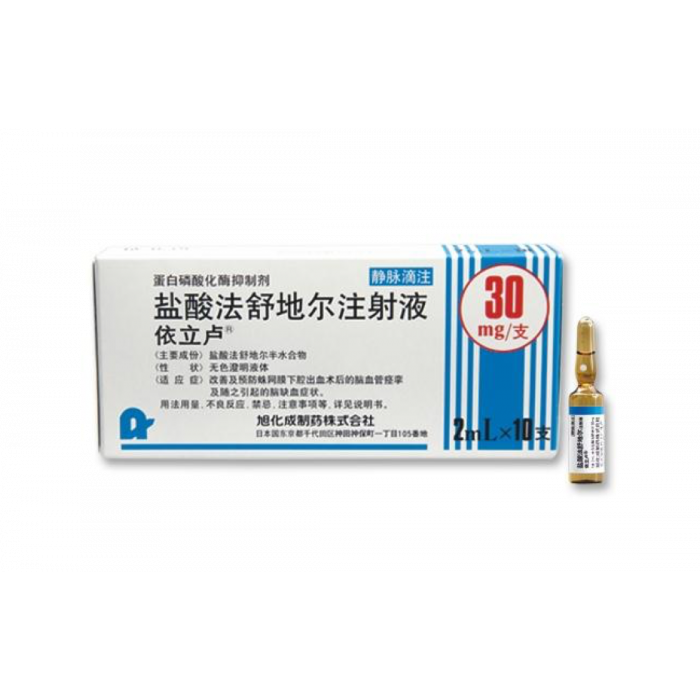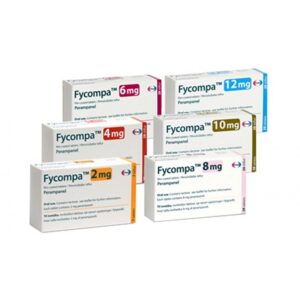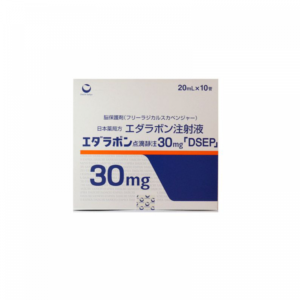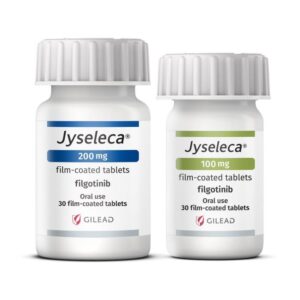Eril (fasudil hydrochloride) for sale – Buy Eril (fasudil hydrochloride) Online
What is Eril (fasudil hydrochloride)?
Eril (fasudil hydrochloride) is a RhoA/Rho kinase (ROCK) inhibitor, currently approved in Japan and China, and helps improve and prevent cerebral vasospasm and cerebral ischemia caused by subarachnoid haemorrhage[2].
How does Eril (fasudil hydrochloride) work?
Fasudil hydrochloride (HCl) is a selective RhoA/Rho kinase (ROCK) inhibitor and is indicated for the treatment of cerebral vasospasm and cerebral ischemia.
ROCK is an enzyme that plays an important role in mediating vasoconstriction and vascular remodeling in the pathogenesis of parenchymal haematomas. ROCK induces vasoconstriction by phosphorylating the myosin-binding subunit of myosin light chain (MLC) phosphatase, thus decreasing MLC phosphatase activity and enhancing smooth vascular muscle contraction[3].
Where has Eril (fasudil hydrochloride) been approved?
Eril (fasudil hydrochloride) was approved for brain ischemia and cerebral vasospasm by:
- Pharmaceuticals and Medical Devices Agency (PDMA), Japan, June 1995[1]
- National Medical Products Administration (NMPA), China, April 2010[3]
Please note that this medication may have also been approved in other regions than the ones we’ve listed. If you have a question about its approval in a specific country feel free to contact our support team.
How is Eril (fasudil hydrochloride) taken?
The recommended dosage is[1]:
- 30 mg, diluted with 50-100 ml of normal saline or glucose injection, by intravenous invasion, for adults
Adjustment in dose or discontinuation may be required based on symptoms and experienced side effects[1].
Complete information about Eril (fasudil hydrochloride) dosage and administration can be found in the official prescribing information listed in our references section[1].
Note: Please consult with your treating doctor for personalised dosing.
Are there any known side effects or adverse reactions of Eril (fasudil hydrochloride)?
Common adverse reactions
The most common adverse reactions listed in the prescribing information include[1]:
- Intracranial haemorrhage (1.63%).
- Bleeding e.g. gastrointestinal bleeding, pulmonary haemorrhage, nose bleeding, subcutaneous haemorrhage (0.29%)
- Hypotension, facial flushing
- Anaemia, leucopenia, thrombocytopenia
- Liver abnormalities
- Abnormal renal function e.g. elevated creatinine
- Bloating, nausea, vomiting
- Rash
- Fever
- Weak respiratory system
Use in specific populations
Eril (fasudil hydrochloride) can be fatal for a foetus. Additionally, it is advised not to be taken while pregnant or breastfeeding[1]. Patients over the age of 70 are advised to use this medicine with caution[3].
Safety and effectiveness in paediatric patients has not been established[1].
For a comprehensive list of side effects and adverse reactions please refer to the official prescribing information[1].
References
[PDF] PMDA, August 2018.
Asahi Kasei Pharma, June 2019.
NMPA, June 2019.
This content has been reviewed by a Medical Doctor.







Reviews
There are no reviews yet.